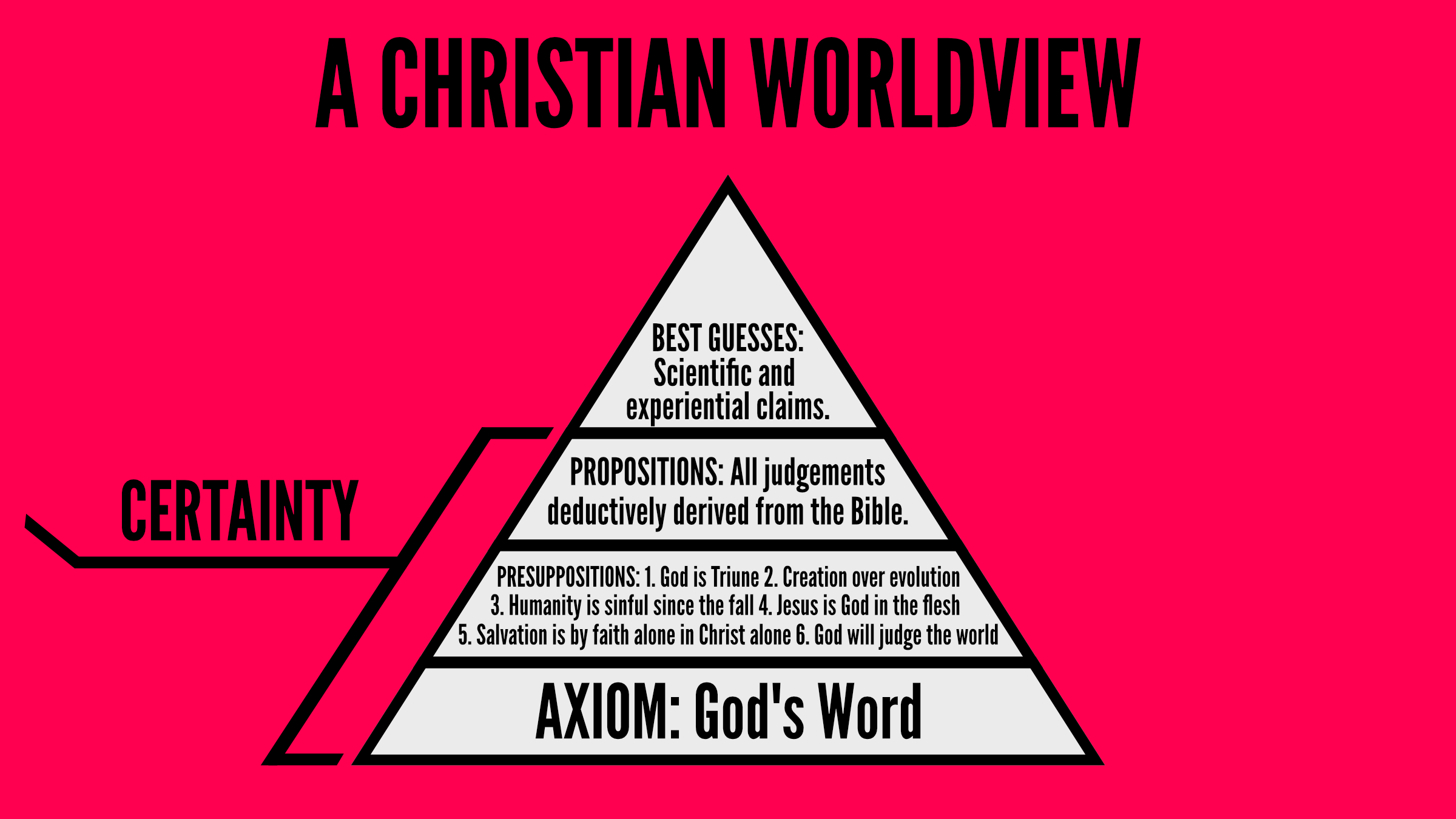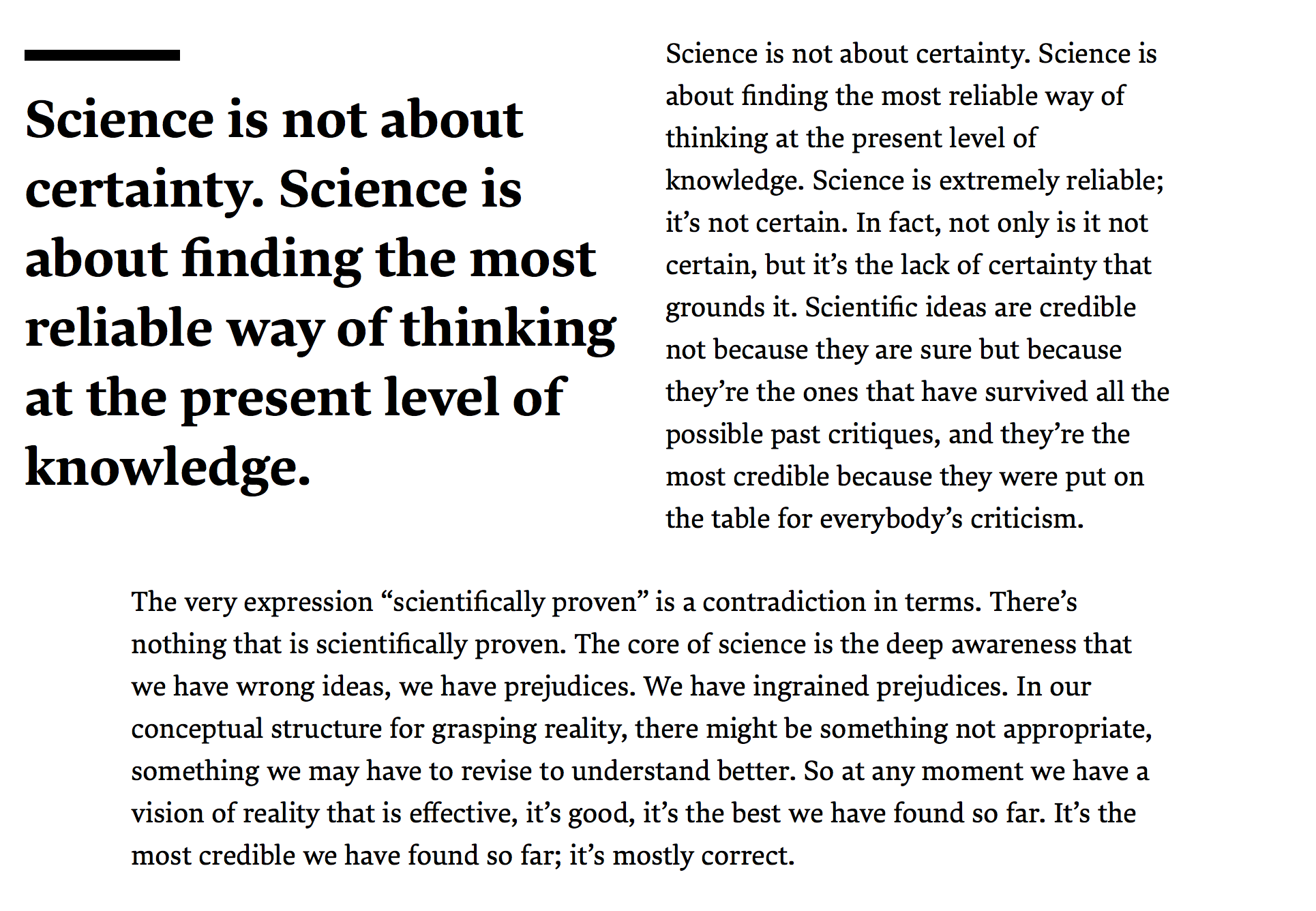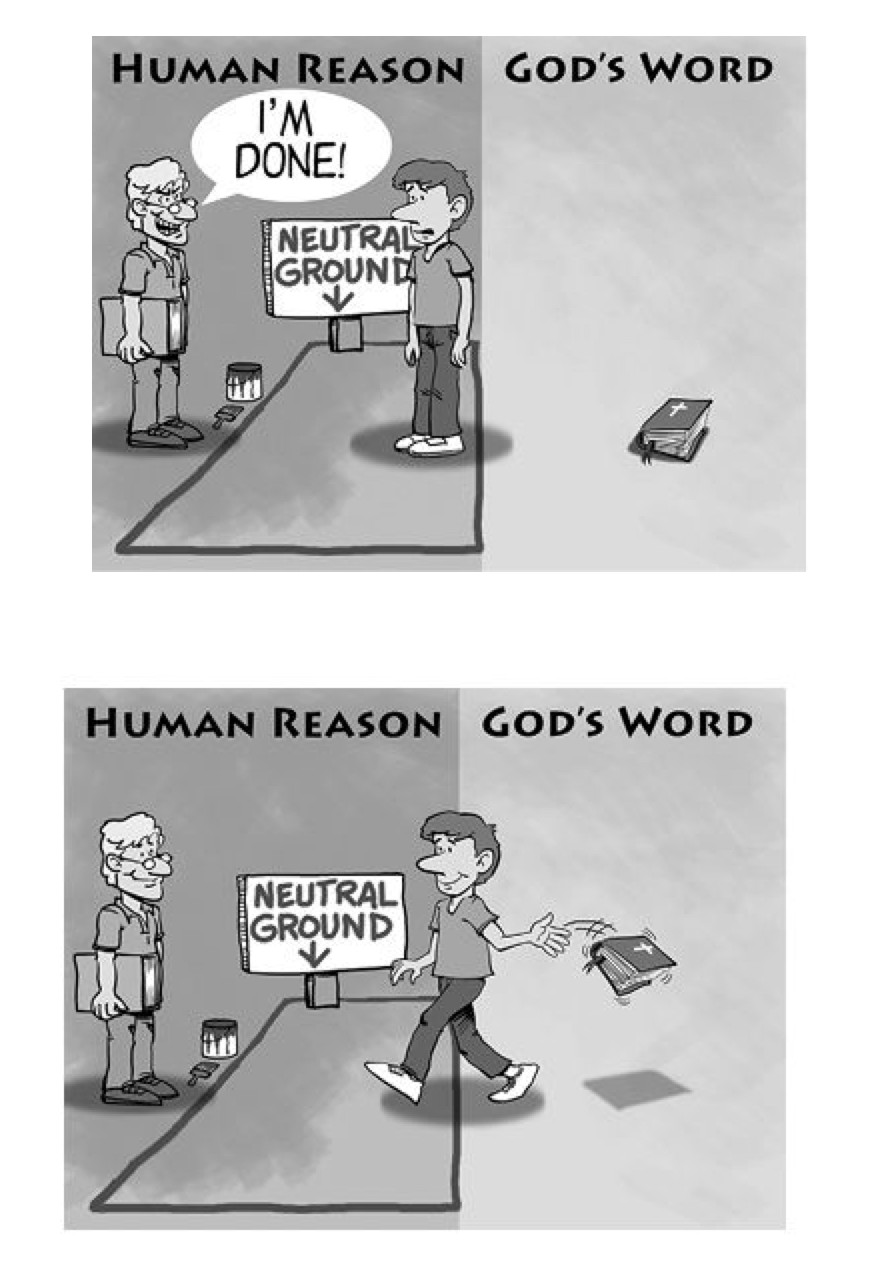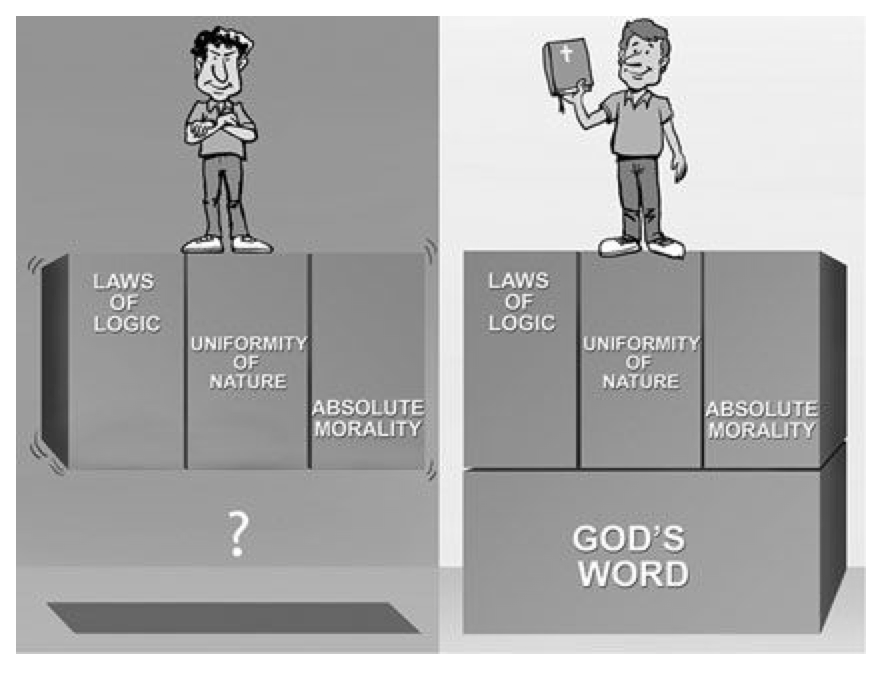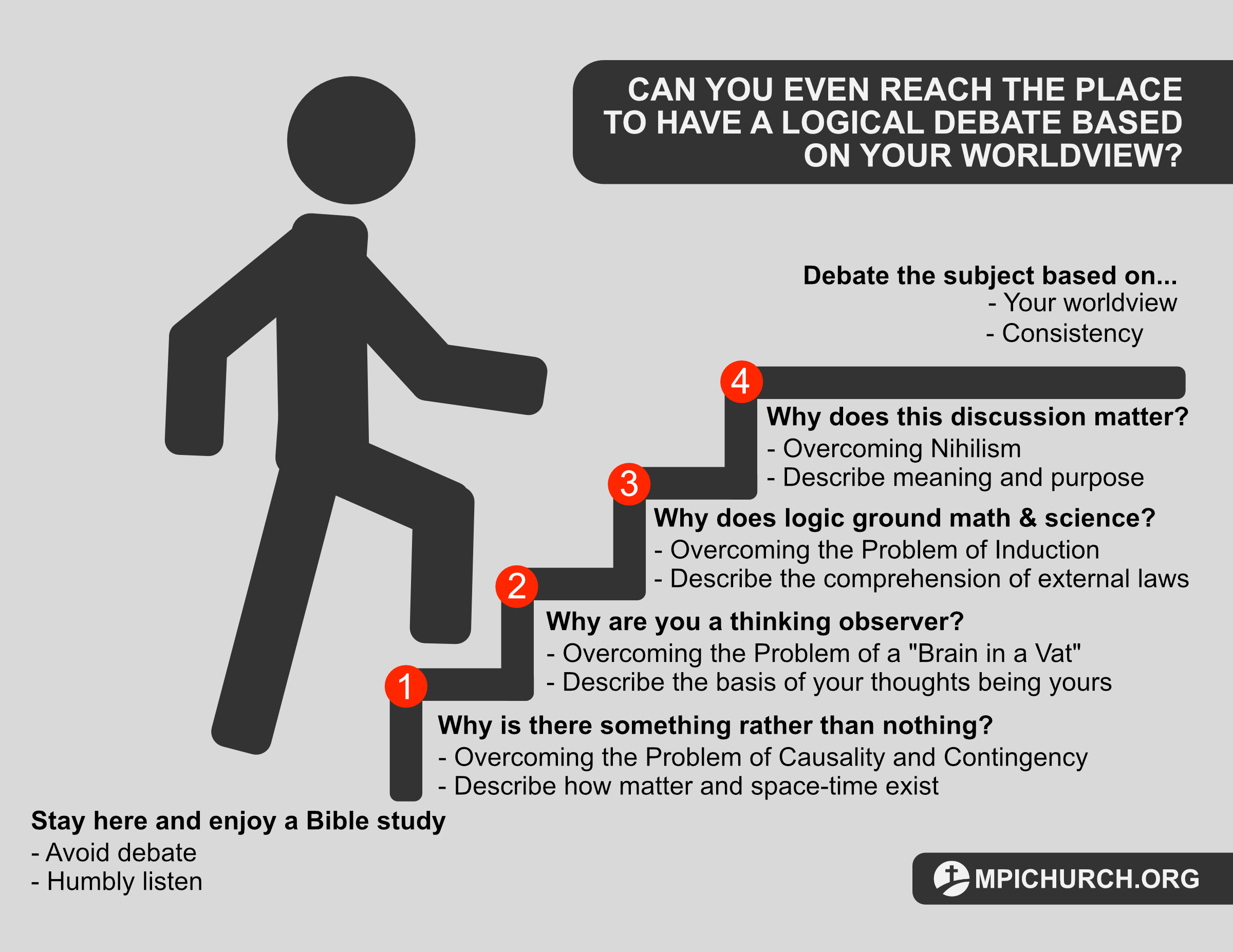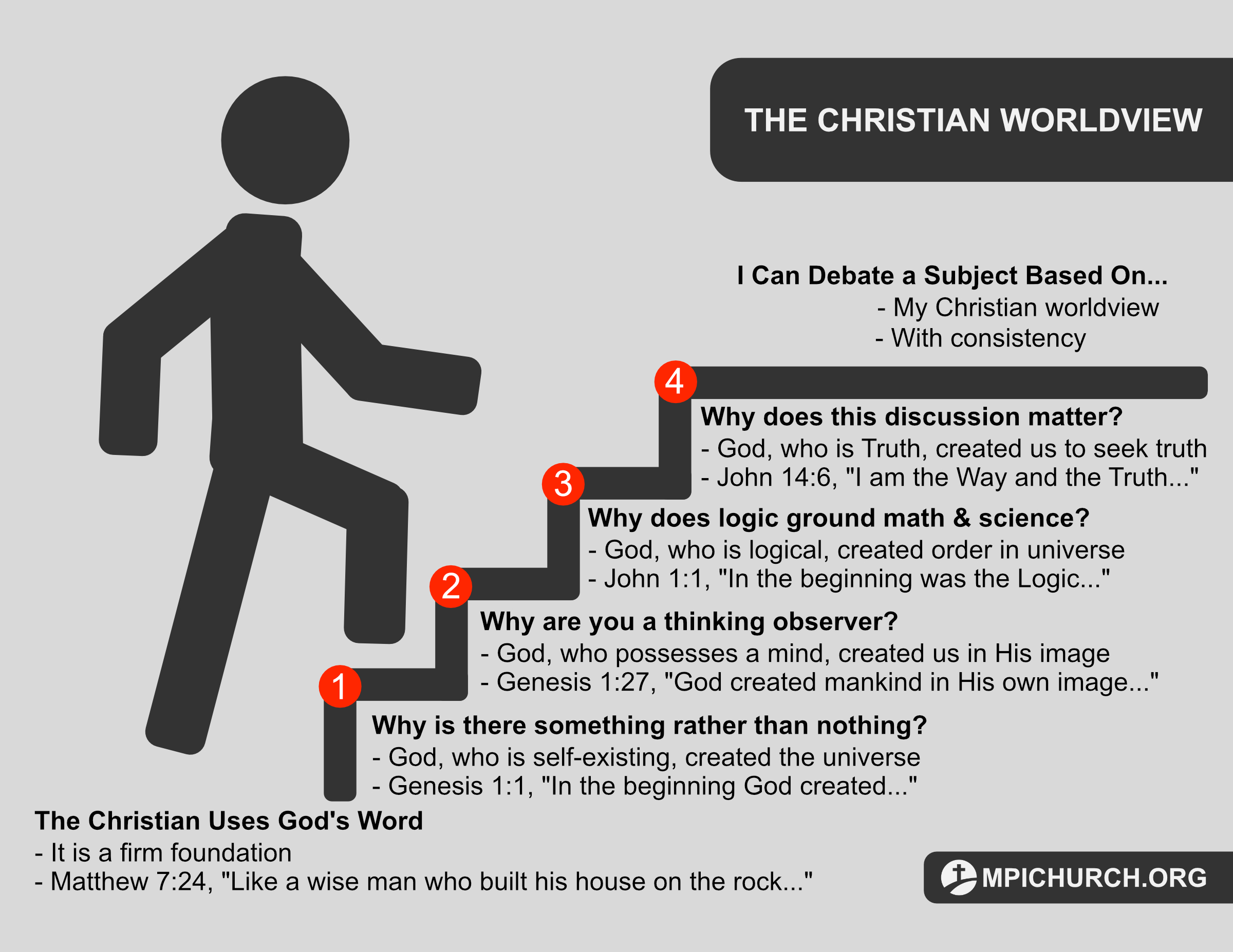God has called us in this end-time generation to be disciples that make disciples of the nations- teaching them to obey everything that Jesus has commanded (Matthew 28:18-20). Part of this call to discipleship is help conform people’s worldview to the Bible.
OPENING TEXT
2 CORINTHIANS 10:3-5, “3 For though we live in the world, we do not wage war as the world does. 4 The weapons we fight with are not the weapons of the world. On the contrary, they have divine power to demolish strongholds. 5 We demolish arguments and every pretension that sets itself up against the knowledge of God, and we take captive every thought to make it obedient to Christ.”
DEFINITIONS
WORLDVIEW: The lenses in which people see the world in an ethical and religious sense.
EPISTEMOLOGY: The study of knowledge, “How do you know what you know?”
ONTOLOGY: The study of being, “What is the nature of the things I know?”
THREE MAIN LAWS OF LOGIC: Law of Identity (“A” is “A”), Law of Non-Contradiction (“A” cannot be “B” is “B” is different than “A”), and the Law of the Excluded Middle (“A” is either “A” or “Not A”, it cannot be both “A” and “Not A” at the same time). Example: Joe Wyrostek is Joe Wyrostek, Joe Wyrostek cannot be Joe Wyrostek and Bob Jones at the sometime, and a person is either Joe Wyrostek or not Joe Wyrostek.
IMPOSSIBILITY OF THE CONTRARY: A knowledge claim that is proven by showing that its opposite claim is impossible. Examples, “I exist because it is impossible for me not to exist and engage in this conversation at the same time.” And, “God exists because it is impossible for the universe (and all that it is in it) to come from nothing.”
LEVELS OF KNOWLEDGE: Axiom (the single base and foundation of all your knowledge), presuppositions (beliefs that are consistent with your axiom), propositions (claims derived from your axiom and presuppositions), and best guesses (scientific and personal claims about the world).
A BIBLICAL WORLDVIEW: Seeing the world through the lens of God’s Word (2 Timothy 3:16-17).
-
- Axiom: The Protestant Bible (sixty-six books) is the Word of God and is the foundation for all truth and knowledge.
- Presuppositions: The Word of God gives the following six categories of knowledge; “God, creation, humanity, Jesus, salvation, and judgment.”
- Propositions: All implications derived from good biblical exegesis and deductive logic.
- Best Guesses: All ideas based on induction (the scientific method).
A Theoretical Physicist Explains Why Science is Not About Certainty, Dr. Carlo Rovelli
THE MYTH OF NEUTRALITY
LUKE 11:23, “Whoever is not with me is against me, and whoever does not gather with me scatters.”
THREE EXAMPLES OF NON-BIBLICAL WORLDVIEWS FROM NON-THEISTS
EXAMPLE 1: “I don’t believe in absolute truth.”
Reply: “Do you absolutely believe that it is true there are no absolute truths? Because if you are making an absolute truth claim, while at the same time denying that you believe in absolute truth claims, you have contradicted yourself.”
Solution: There has to be absolute truth as a foundation for all statements. Otherwise, everything we say would be nonsense.
EXAMPLE 2: “Each person should be able to decide what is morally right for themselves.”
Reply: “Does your decision about how each person should decide morality apply to everyone? Because if you believe your decision about morality applies to everyone, while at the same time claiming that no one should make moral decisions for others, you are contradicting yourself.”
Solution: All moral decisions must first be assumed to be universal. Otherwise, they would not be projected unto others.
EXAMPLE 3: “I don’t know if there is a “god” and you don’t know either. No one knows.”
Reply: “How do you what others know, do you know everything? Because if you don’t know everything that everyone knows, while claiming that no one knows about God, then you are contradicting yourself.”
Solution: All knowledge is spread by those who know to those who don’t know. Therefore, those who don’t know something should be open to learn from those who claim to know something. Otherwise, no one would everything learn anything new.
THREE EXAMPLES OF NON-BIBLICAL WORLDVIEWS FROM CHRISTIANS
EXAMPLE 1: “Don’t judge me because only God can judge me”
Reply: “Are you judging me? Because if you are making a judgment about me, while claiming that no one but God should judge others, you are contradicting yourself.”
Solution: Everyone makes judgements. The point is whether or not our judgments are based on God’s Word (John 7:24).
EXAMPLE 2: “If what you say hurts people’s feelings you are not acting Christ-like.”
Reply: “If you hurt my feelings are you not acting Christ-like? Because if you don’t care about hurting my feelings, while making the claim that I shouldn’t hurt people’s feelings, you are contradicting yourself.”
Solution: Our feelings are not the arbiter of truth, God’s Word is (2 Corinthians 7:8-13).
EXAMPLE 3: “Christians should never try to change people’s minds, that’s the job of the Holy Spirit.”
Reply: “Are you as a Christian trying to change my mind? Because if you are trying to change my mind, while believing that only the Holy Spirit can change my mind, you are contradicting yourself.”
Solution: All communication, especially in regard to Christian subjects, is meant to change the mind to the mind of Christ (Romans 12:1-2).
Romans 12:1-2, “1 Therefore, I urge you, brothers and sisters, in view of God’s mercy, to offer your bodies as a living sacrifice, holy and pleasing to God—this is your true and proper worship. 2 Do not conform to the pattern of this world, but be transformed by the renewing of your mind. Then you will be able to test and approve what God’s will is—his good, pleasing and perfect will.”


